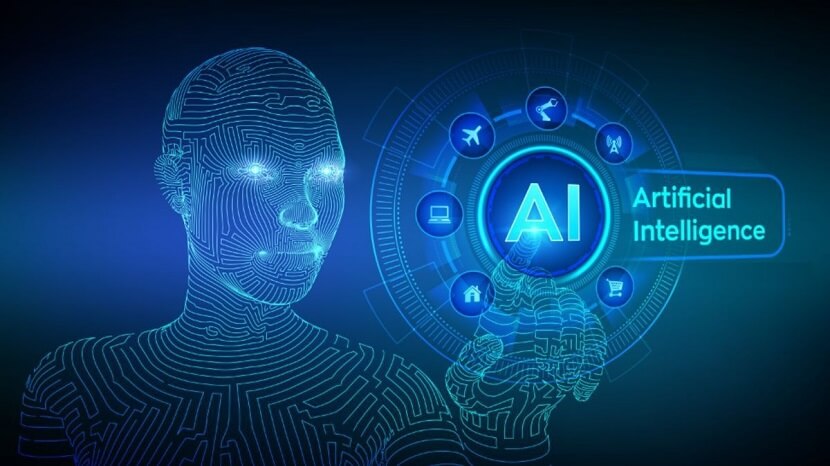What Challenges are Associated with Generative AI Testing: Unpacking the Complexity 2024
Last updated on December 21, 2024 by Digital Sky Star

"The most important thing in business is innovation, and trends and technologies are at its heart."
Generative AI represents a tremendous leap forward in the realm of software development and quality assurance, introducing the ability to create content, solve problems, and generate test cases autonomously. However, on the flip side, this advanced technology comes with a set of unique challenges when it comes to testing. Establishing a robust QA strategy with generative AI requires a keen understanding of its inherent complexities, as the technology's capacity to produce an infinite range of diverse outputs tests the limits of traditional testing frameworks.
The core difficulty in testing generative AI systems lies in the unpredictability of their output. Since these systems are designed to generate novel content, defining what constitutes a 'correct' or expected result can be elusive. This phenomenon, often referred to in the testing community as the Oracle Problem, is only the tip of the iceberg. Testers also need to grapple with scenarios where generative AI's versatility can lead to biased or ethically questionable outputs, demanding a meticulous approach to validation that goes beyond conventional methods.
Key Takeaways
- Generative AI systems pose unique challenges in software testing due to their unpredictability.
- A comprehensive QA strategy is necessary to validate and ensure the quality of these AI systems.
- Ethical considerations and bias detection are crucial aspects of testing generative AI.
Fundamentals of Generative AI Testing
Testing Generative AI (GenAI) systems requires an understanding of their unique characteristics, the methods that can be applied to test their functionality, and the role of data throughout the testing process. This ensures the quality assurance, reliability, and accuracy of the systems developed.
Distinctive Characteristics of GenAI Systems
Generative AI Development Services systems exhibit certain characteristics that set them apart from traditional software. These systems, based on advanced machine learning models such as transformers and generative adversarial networks (GANs), can produce highly creative and varied outputs, making standard test cases challenging to design. Unlike traditional software, GenAI systems lack a single correct answer or output, complicating the task of verifying their reliability.
Methods for Testing Generative AI
Developing novel testing approaches is essential as traditional testing techniques often fall short when applied to GenAI systems. In software engineering research, methods that adapt to the fluidity of generative outputs are being explored. For example, quality assurance teams may use synthetic data or transformers to craft test cases that can handle the unpredictable nature of AI-generated content. This approach ensures that tests are flexible yet stringent enough to assure system accuracy.
Importance of Data in AI Testing
Data privacy is paramount when testing GenAI systems, as they often require substantial amounts of data to learn and generate outputs. The use of synthetic data can help address privacy concerns, allowing for the creation of realistic test data without compromising sensitive information. In this context, the quality of the test data directly influences the effectiveness of the tests, ensuring the GenAI system operates as intended while upholding high standards of data privacy.
Key Challenges and Considerations
When testing generative AI (GenAI) systems, developers and quality assurance professionals grapple with several pressing issues, from ensuring consistent output quality to navigating a complex legal landscape.
Quality and Reliability Concerns
In the realm of GenAI systems, maintaining quality and reliability is paramount. For instance, the variability in outputs from tools like language models and chatbots presents unique challenges; the Oracle problem cited in software testing complicates the validation process, as there may not be straightforward correct answers against which to verify the output of GenAI.
Addressing Bias and Ethical Issues
Another critical issue is the potential for algorithmic bias, where models may inadvertently perpetuate prejudices present in their training data. It is crucial to strive for unbiased, representative datasets and to incorporate ethical considerations into the testing process to mitigate harmful outputs—a principle echoed in research on bias and fairness in GenAI.
Navigating the Evolving Landscape
The field of generative AI is a rapidly evolving domain, with continuous advancements in transformers and GANs (Generative Adversarial Networks). Keeping pace requires adapting quality assurance and testing strategies to new technologies and methods.
Tools and Techniques for Effective Testing
Effective testing requires leveraging a variety of tools and techniques. Test automation platforms, as found on sites like GitHub, and testing methods such as data-driven testing and scripted automation are integral to the software testing process. Selecting appropriate tools, like those for verifying authenticity to counter deep fakes, is critical.
Legal and Regulatory Implications
Lastly, legal and regulatory implications pose a challenge, especially with concerns around copyright, data privacy, and fraud prevention. It is evident that balancing innovation with compliance demands keen attention to legal safeguards and regulations applicable to content creation and distribution.
Conclusion
Generative AI systems present a complex landscape for testing due to their inherent unpredictability and the subjective nature of their outputs. They confront testers with the Oracle problem where definitive correct answers may not exist, complicating the validation process. It is essential to design innovative strategies incorporating diversity, adaptability, and thorough evaluation metrics to overcome these challenges. Effective testing ensures the reliability of generative AI systems while fostering trust in their integration into diverse sectors.
"Technology is best when it brings people together." – Matt Mullenweg
If you would like more information about the What Challenges are Associated with Generative AI Testing: Unpacking the Complexity 2024, please send us an email.
Written by Digital Sky Star
Trends and Technologies
Trends and Technologies are shaping the future with innovations in AI, IoT, blockchain, and more. Stay updated on the latest advancements transforming industries worldwide. Explore cutting-edge tools, insights, and breakthroughs that drive progress and efficiency. Unlock potential, embrace change, and stay ahead in the ever-evolving tech landscape.
